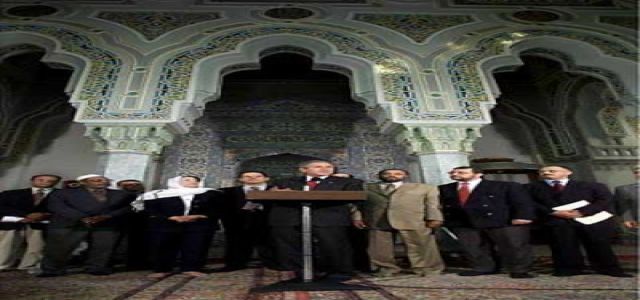|
|||||||||

Islam, Reform and Liberalism Intersect
There is an excellent discussion developing in How to Make Islam and Separation of Mosque/State Compatible. Do get involved.
|
|||||||||
| Thursday, August 9,2007 00:00 | |||||||||
|
|||||||||
|
There is an excellent discussion developing in How to Make Islam and Separation of Mosque/State Compatible. Do get involved.There are also two excellent response pieces out there, one by Soda Water, and this excellent one out of Malaysia by bin Gregory which really puts a lot of meat on the bones. Some old posts on the subject include Thabet’s write up of City Circle’s debate on Islam and Liberalism, as well as his post on how to make the judiciary in Muslim states independent. Naturally, democracy is co-extensive with the idea of liberalism, and therefore, I support ventures like Project for Middle East Democracy, which is ran by Shadi Hamid who wrote a number of excellent posts at the now archived Eteraz.org. An excellent contribution to this discussion is by Professor of Law Dr. Fadel whose article, The Theological and Ethical Roots of Public Reason in Islamic Law, the summary of which is below (click here to download):The events of September 11, 2001 and the subsequent declaration of an open-ended "war on terror" have given a new urgency to long-standing discussions of the relationship of Islam to liberalism. In order to avoid the polemics that characterize much of the writing in the "Islam/Liberalism" genre, this Article proposes to use the framework set forth in John Rawls’ Political Liberalism to examine the grounds on which Muslim citizens of a liberal state could participate in a Rawlsian overlapping consensus. An overlapping consensus according to Rawls arises among citizens in a politically liberal state when they – despite holding incompatible theories of the good – each endorse the constitutional essentials of a politically liberal state for reasons within their own comprehensive religious or philosophical doctrines. This Article argues that the basis on which orthodox Muslims can participate in such an overlapping consensus can be found in Islamic theology and ethics. Because theology and ethics comprise the fundamental commitments of orthodox Islam, the political commitments set forth in Islamic substantive law which are inconsistent with constitutional essentials must be interpreted in light of those commitments. After describing orthodox Islam’s theological and ethical commitments to rational theological and moral inquiry, the Article argues that such commitments implicitly require political institutions that allow free theological and ethical inquiry. The Article illustrates this aspect of Islam by describing the development of a system of intra-Muslim normative pluralism in which the existence of conflicting ethical judgments was accepted as a legitimate and inevitable product of moral reasoning. The existence of normative pluralism in the realm of ethics, in turn, made the project of a legal system derived entirely from revelation an epistemological impossibility. The result was that Islamic substantive law was forced to adopt non-theological modes of justification. The Article argues that, in the course of so doing, Muslim jurists made appeals to what Rawls would deem to be public reason. The Article concludes with a series of examples from Islamic substantive law that illustrate the ways in which the pre-modern Islamic legal system represents a qualified form of public reason, consistent with the public culture of a liberal democracy. If someone wants to summarize that article, do it and I will link it from here and it would be a nice contribution (and will get you tons of hits). Otherwise, you must wait till I’m done reading it. |
|||||||||
|
Posted in |
|||||||||
|
|||||||||
|
|
|||||||||
| Related Articles | |||||||||
|
|






